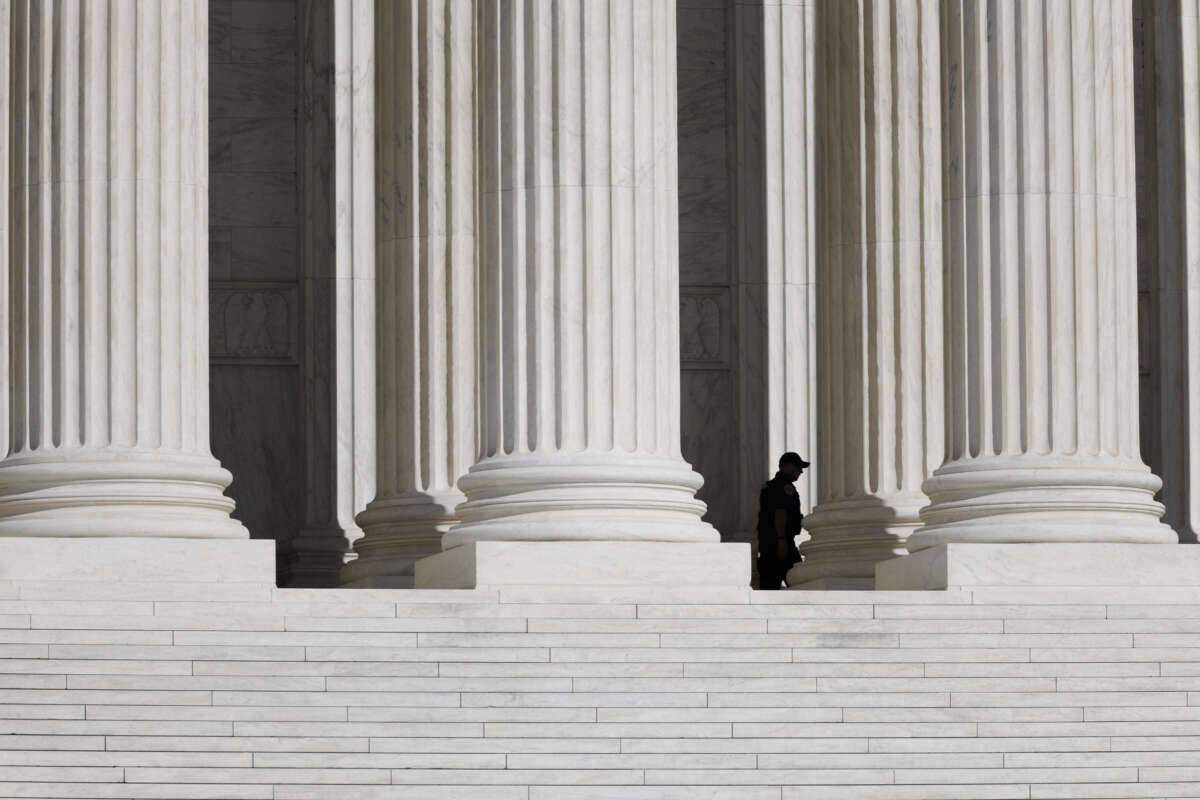A new poll demonstrates that U.S. voters across all political viewpoints support implementing reforms to the federal Supreme Court, including limits on how long justices can serve and an ethics code that is actually enforceable.
The poll, conducted by the Annenberg Public Policy Center at the University of Pennsylvania, was published last week. It found that 68 percent of Americans supported imposing term limits on justices, ending the practice of allowing justices to serve lifetime appointments. Only 17 percent of voters were against the idea.
Support for this reform transcended political ideology, with 79 percent support from Democratic voters and 58 percent support from Republican voters. Sixty-one percent of independent voters also liked the reform.
The poll also asked about “creating a formal ethics code for U.S. Supreme Court justices that allows for justices to be investigated if they are accused of an ethical violation.” On that question there was even greater support, with 77 percent of Americans backing the proposal and only 8 percent saying they would oppose it.
An additional reform allowing voters to have a “check” on the Supreme Court received plurality support: allowing the public to overturn controversial decisions made by the court in national elections, which garnered support from nearly 1 in 2 voters (47 percent). Just over a third of voters were opposed.
While some issues arguably shouldn’t be put to a vote — including matters involving human rights — the response rate on that question indicates that the American public is growing deeply dissatisfied with the Supreme Court, as it has rendered a number of unpopular, far right decisions in recent years, and its members are embroiled in several scandals. Indeed, a Gallup poll from July found that only 43 percent of Americans have a favorable view of the court, while a majority, 52 percent, disapprove. That approval rating is a 15-point drop from how Americans viewed the institution just four years ago.
Some justices of the court, perhaps recognizing that public opinion on the Court has waned considerably in recent years, have been outspoken in support of some reforms. Justice Elena Kagan, for example, has twice over the summer expressed support for creating a binding ethics code.
The Supreme Court established a stronger ethics code last fall but refused to create a way in which it could be implemented — as it is right now, justices themselves determine whether they have committed an ethics violation or not. Last week, Kagan said it would be “a good idea” to create a mechanism independent of justices to enforce the code.
“It seems like a good idea in terms of ensuring that we comply with our own code of conduct going forward in the future. It seems like a good idea in terms of ensuring that people have confidence that we’re doing exactly that,” Kagan said while speaking at a New York University event last week.
Her statement echoed one she made at a speaking engagement in July, when she said:
Rules usually have enforcement mechanisms attached to them, and this one, this set of rules, does not. … However hard it is, we could and should try to figure out some mechanism for doing this.
Justice Ketanji Brown Jackson has similarly expressed openness to creating an enforcement mechanism for the court’s ethics code, noting that lower court judges in the judiciary are subjected to such terms.
“I think the question is whether there’s something about the Supreme Court that would make it different than the binding ethics rules that exist in the lower courts. At least up to this point, I haven’t seen any good reason why there shouldn’t be binding rules,” Jackson said in a recent NPR interview. “But so far, we’re not there.”
The Supreme Court has indeed faced numerous ethics scandals in recent years. The public has raised questions regarding Justice Samuel Alito’s decision not to recuse in cases involving former President Donald Trump and his associates, despite flying flags in front of his homes that signal support for Trump and Christian nationalism. Meanwhile, Justice Clarence Thomas has failed to report millions of dollars in gifts from wealthy conservative benefactors, and has ruled in cases where those benefactors have had vested interests in the outcomes.
Angry, shocked, overwhelmed? Take action: Support independent media.
We’ve borne witness to a chaotic first few months in Trump’s presidency.
Over the last months, each executive order has delivered shock and bewilderment — a core part of a strategy to make the right-wing turn feel inevitable and overwhelming. But, as organizer Sandra Avalos implored us to remember in Truthout last November, “Together, we are more powerful than Trump.”
Indeed, the Trump administration is pushing through executive orders, but — as we’ve reported at Truthout — many are in legal limbo and face court challenges from unions and civil rights groups. Efforts to quash anti-racist teaching and DEI programs are stalled by education faculty, staff, and students refusing to comply. And communities across the country are coming together to raise the alarm on ICE raids, inform neighbors of their civil rights, and protect each other in moving shows of solidarity.
It will be a long fight ahead. And as nonprofit movement media, Truthout plans to be there documenting and uplifting resistance.
As we undertake this life-sustaining work, we appeal for your support. Please, if you find value in what we do, join our community of sustainers by making a monthly or one-time gift.
